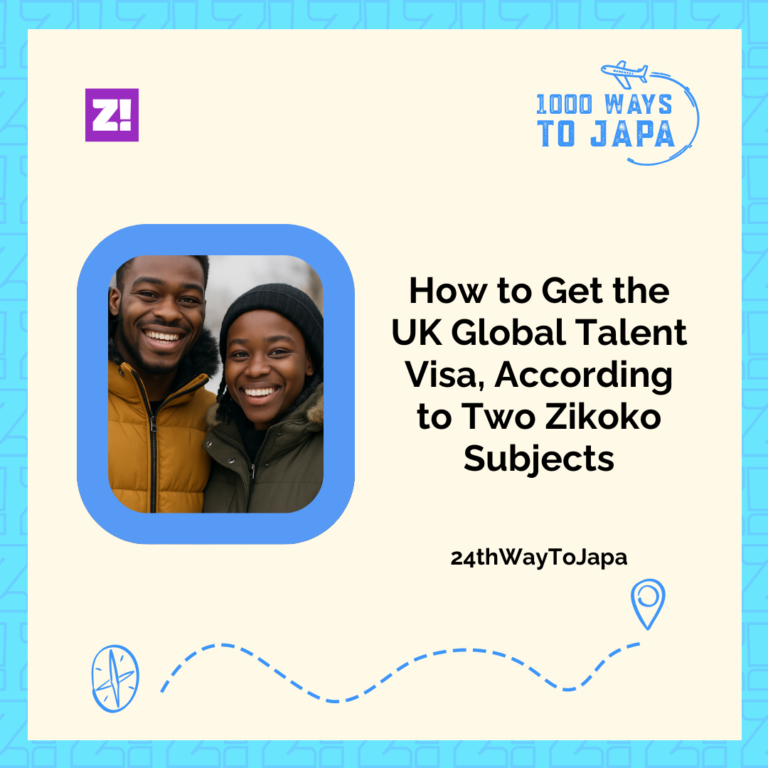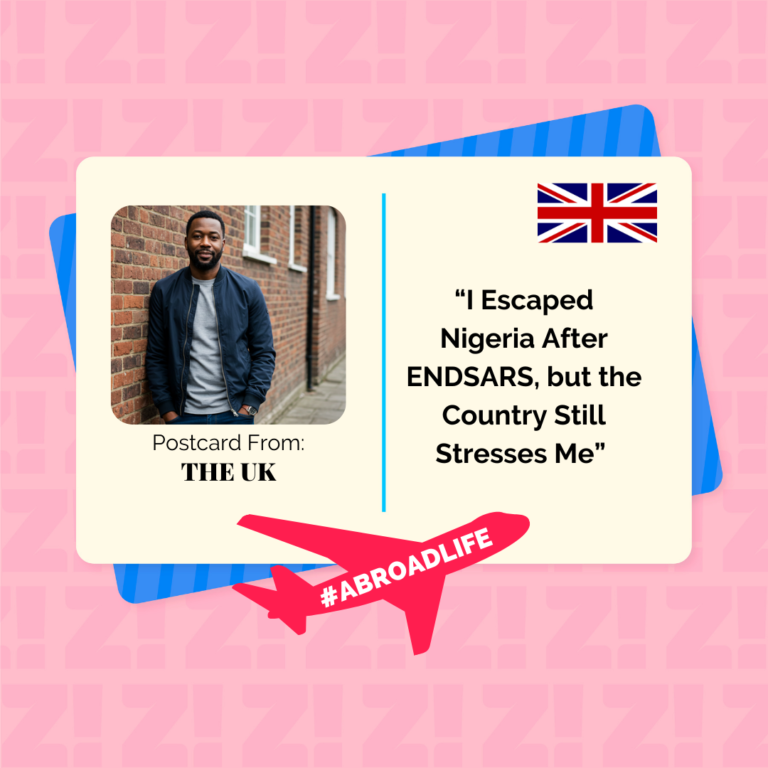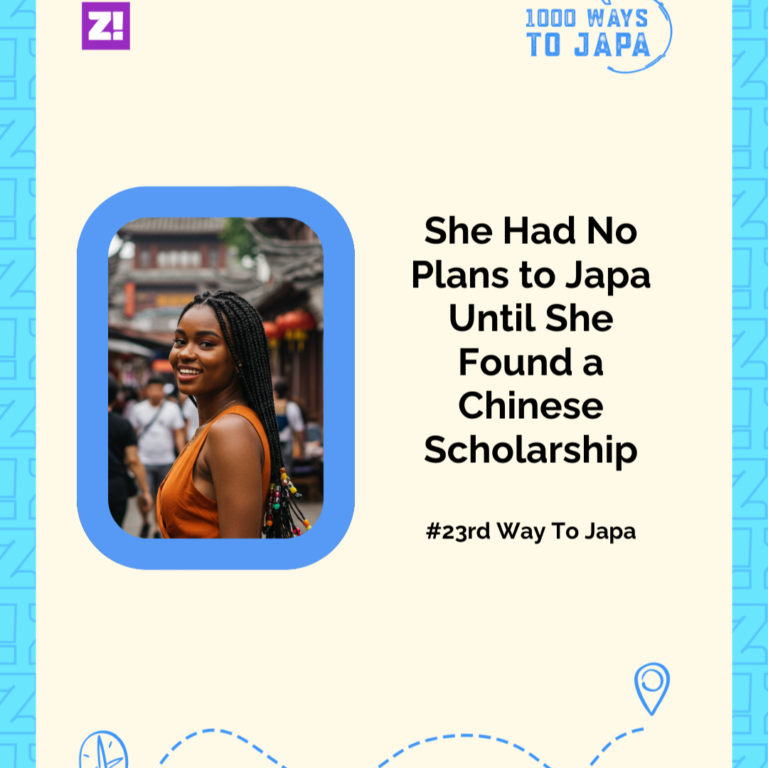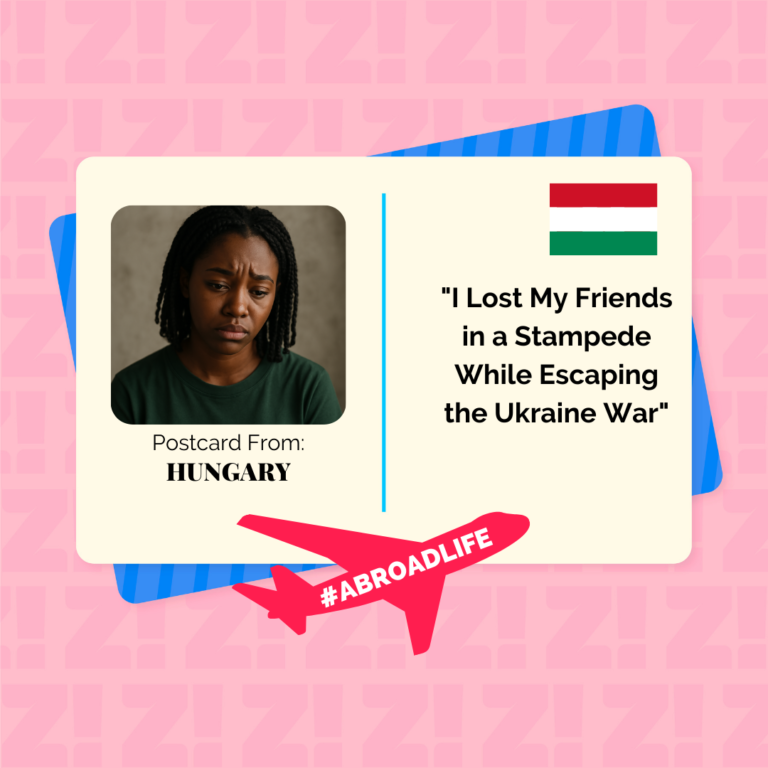Someone you know has left or is planning to leave. 1,000 Ways To Japa will speak to real people and explore the infinite number of reasons and paths they use to get to Japa.
Faith, a writer and poet, has left Nigeria twice but made the second move permanent. After her first move as a Chevening Scholar, she returned to Nigeria, built a creative portfolio, and secured a Global Talent visa. Now, back in the UK, she’s thriving in the creative scene, enjoying stable electricity and teaching other creatives how to secure the same visa.
Where do you currently live, and when did you leave Nigeria?
I currently live in Norwich, UK. I left Nigeria in March 2024.
How did you end up in the UK?
This is actually my second time moving to the UK. I first moved here as a Chevening scholar.
I’ve always wanted to do my masters in the UK. That’s mainly because my parents could send my brother to the UK for his master’s. But as I got older, the economy became worse so I started considering other funding options.
In 2018, I discovered the Chevening scholarship through research, but I didn’t think I was qualified enough to get it becauseI’ve always assumed that Chevening was for people in the development field, not creative writers like me. But I remember one day in 2019, I stumbled on the Instagram post of a content creator who had gotten the scholarship. That did something to me. For the first time, I was seeing another creative get this scholarship.
What happened after you saw that post?
I decided to apply. There’s something about seeing people in your field do certain things that inspire you. After that post, I made it my life mission to get Chevening. I didn’t even apply for any other scholarship.
Good thing you got in
Oh, I didn’t get the scholarship the first time I applied.
What happened?
I didn’t do enough research to pull off a strong application the first time. I almost gave up, but thank God for a friend who inspired me to try again.
When I was applying for the second time, I did so much research that I could tell you everything on the Chevening website. I watched as many YouTube videos as I could find and watched all the interviews with Chevening program officers in Nigeria.
For my first application, I wanted to study creative writing but I found out after that first rejection that my application was going to be stronger if I opted for a master’s degree in Creative Industries Management and Enterprise. That’s because I had more experience as a creative entrepreneur—I was running an organisation called The African Writers. What I didn’t realise the first time was that I had more impact as the founder of a writing organization than as a writer.
I built my second application around my impact as a founder, and I got in. It felt wild, but it was beautiful to see that actually happened. That year, Chevening chose 49 scholars from Nigeria, and I was the only one studying a creative course
What part of the UK did you study?
I studied in Leicester. Leicester is such a beautiful city; it felt like a mix of both worlds. For creatives who don’t want to live in London, it’s the next best place. I fell in love with the city, and everything changed. Even though I knew Chevening makes it compulsory to return to Nigeria for two years, I underestimated what returning would look like.
I was leaving a beautiful city, friends and opportunities behind. It also didn’t help that my partner was schooling in the UK at the time as well. I remember breaking down in tears at the airport on my way back to Nigeria. But coming back reaffirmed the reason I applied for the scholarship—my love for Nigeria’s creative industry. And so I dedicated my time in Nigeria to giving back, something I will continue to do even from overseas. I also knew I was going to find a way to move back to the UK after the two years expired, and I knew it would either be as a PhD student or as a global talent.
What was coming back like?
It was chaotic at first. I have a YouTube channel and mostly work digitally, so dealing with unstable power supply and noisy neighbourhoods was a lot. People also used to have the most dramatic reaction when they discovered that I came back. At some point, I stopped announcing that I was back. Moving back was a no-brainer, so I applied for a global talent visa.
As a poet?
Yes, it’s not just for tech guys. It’s also for researchers and artists. With that in mind, I dedicated the two years I had in Nigeria to becoming the best poet ever.
How did you do that?
I was very active in the Nigerian creative space. If you want to get this visa, you want to have a track record of being active in your industry over multiple years. You might even want to take up free gigs to build your resume.
The global talent art requires three main types of evidence. The first is to submit proof of performance, publication, appearance, exhibition or sales of your work.
The visa also requires proof of media recognition, whether TV interviews or blogs; you need to show that people have spoken about your work in the past. Finally, you need proof of awards. But the good thing about arts is you don’t necessarily need all; if you have only media recognition and you have proof of performance, you’re okay but you can also choose to have all three. I eventually performed in all the major festivals in Nigeria, which helped as the quality of places you have performed matters as they do their research. I also released my debut spoken-with-poetry EP in 2023 – Blue Hour Notes, which was recognized in reputable publications like BellaNaija.
When you compile your documents (the proofs of performance, recognition, and award), you’ll also need reference letters. But that’s where things get a bit complicated.
How?
One of your reference letters needs to come from a literary organization in the UK. So, in all your pursuits as a writer or poet, ensure that your recognition extends to the international space. I guess that was one of the ways being a Chevening scholar helped me. I already had the opportunity to build those relationships, but I believe that with the right motivation, anyone from Nigeria can do that, too. Please choose people who have strong CVs to write your reference letters because they will have to submit their CVs and they will be vetted. This is why it’s important that you choose people who are establishedin your field.
Interesting
Yeah. That’s just for the first phase, which is the endorsement phase. if you work in tech, you go to Tech Nation for your endorsement, but if you are an artist, you go to Arts Council, England for endorsement.
Stage one was where I needed to convince the Arts Council that I was a performer or a writer with exceptional talent or promise, which was why I submitted all of those different things.
You can either apply to be endorsed as an exceptional talent or an exceptional promise. Exceptional talent is a leader who can prove that their art is recognised and appreciated in more than one country. The rules for promise are not as strict as talent, so I opted for that. The website says you’re supposed to get feedback in 12 weeks, but I heard back from the Arts Council in five weeks. I have a lengthier video on my YouTube channel where I explain how others can get the visa, too.
Once the endorsement body confirms that you meet the criteria, the next stage is almost automatic— you just need to submit your letter of endorsement and TB test. That’s basically how I got the visa.
Congratulations! Now that you’re back in the UK, how is life different?
The first time, I was in the UK on a fully funded scholarship, but now I have to work to pay bills. UK bills are monthly, not yearly. But I’m happy to be back to stable electricity and endless opportunities. I’ve been getting more opportunities to perform poetry on major stages and exploring more creative opportunities this year.
How would you rate your happiness on the sale of one to 10?
I think 8.5
Want to to share your japa story? Please reach out to me here.




